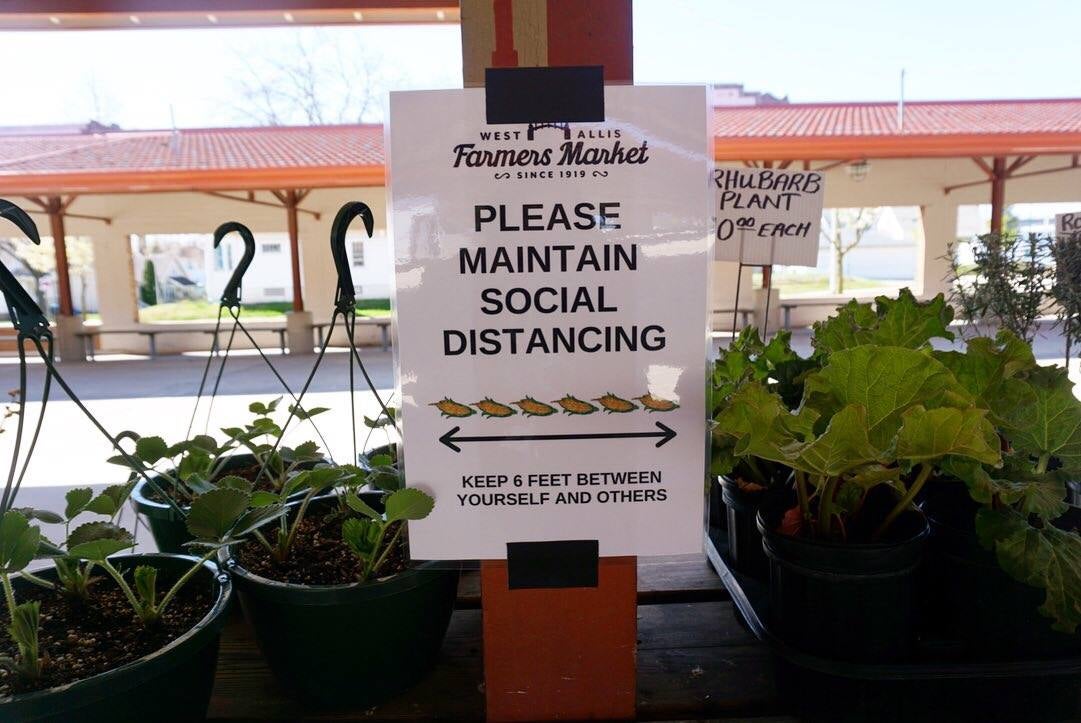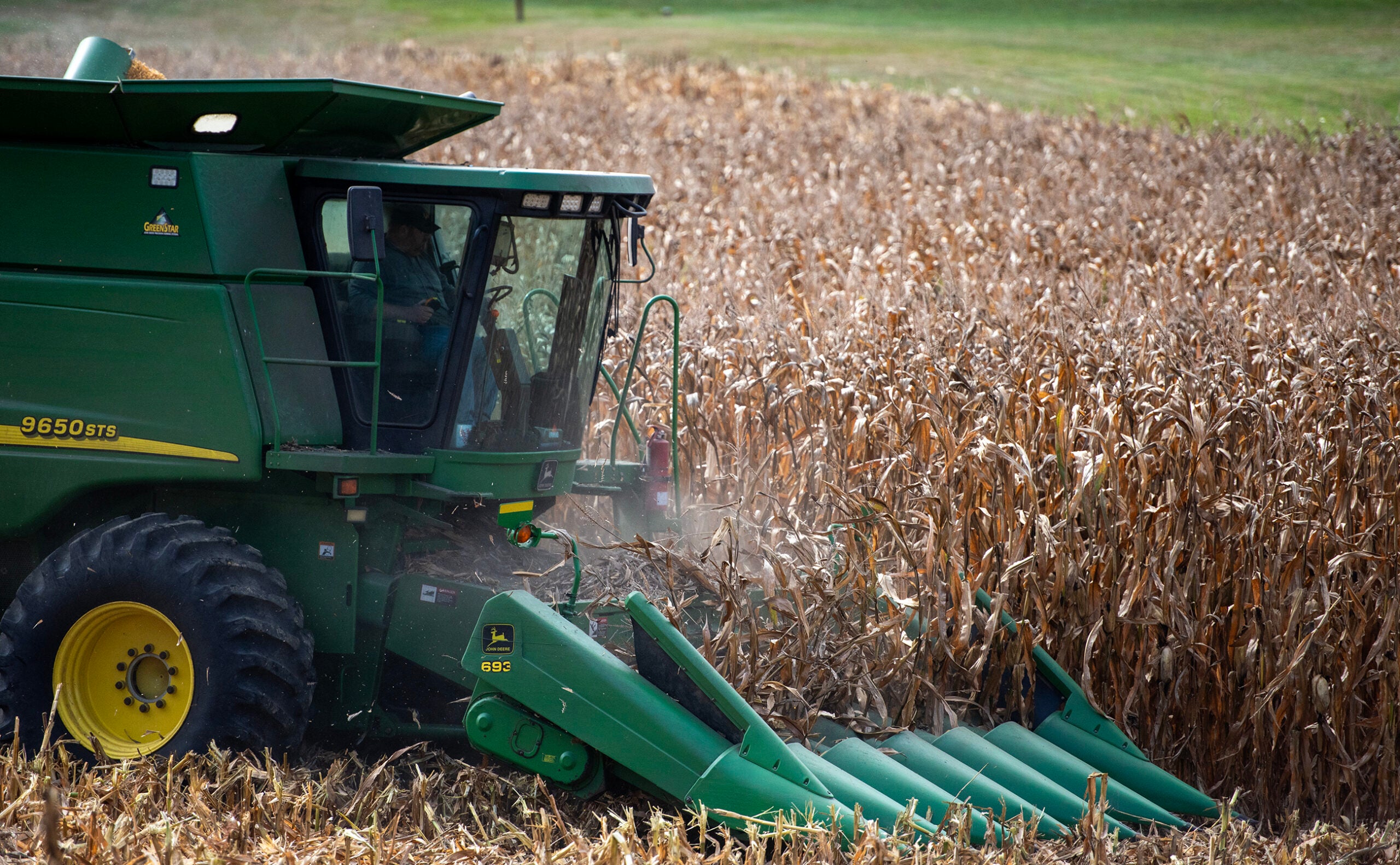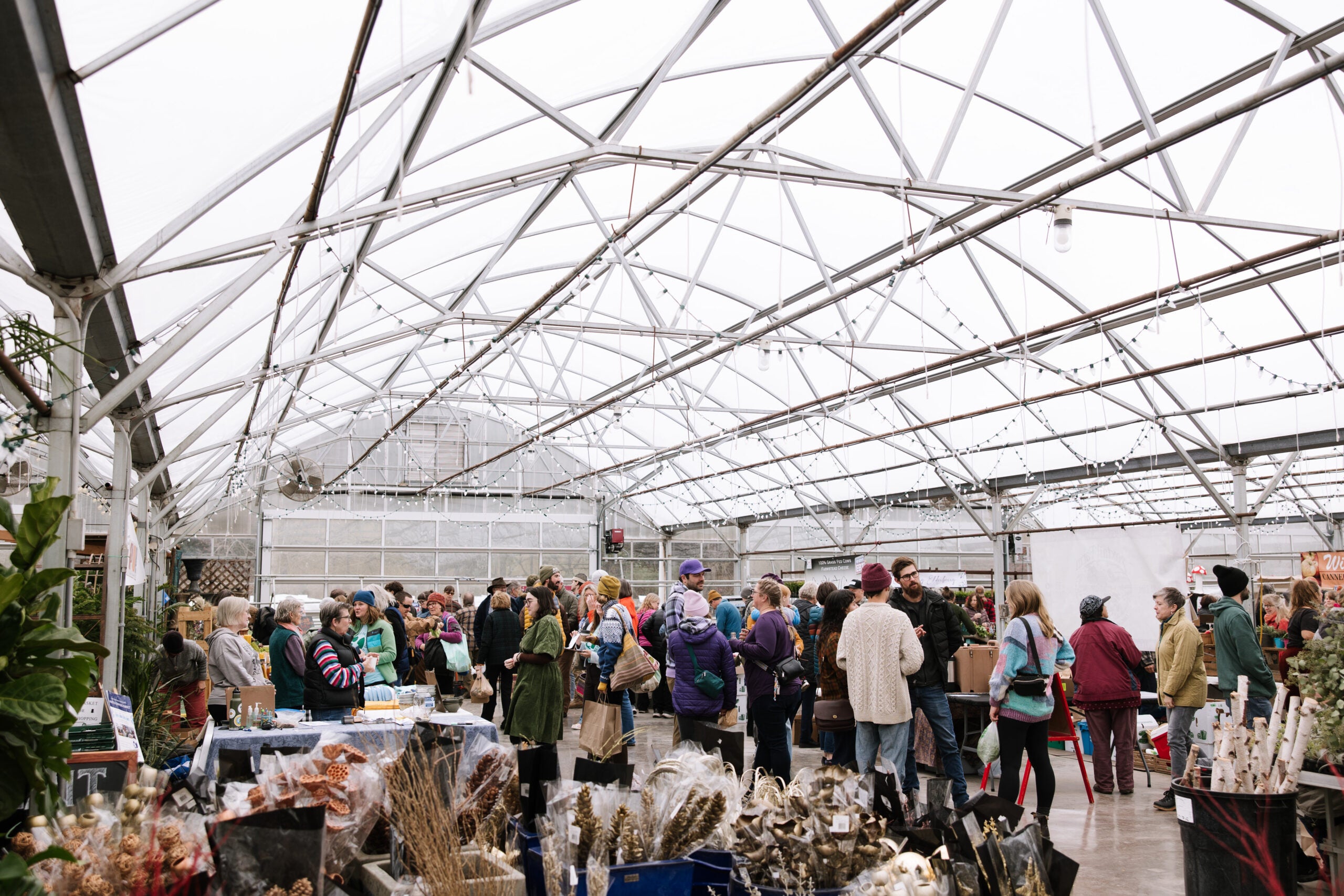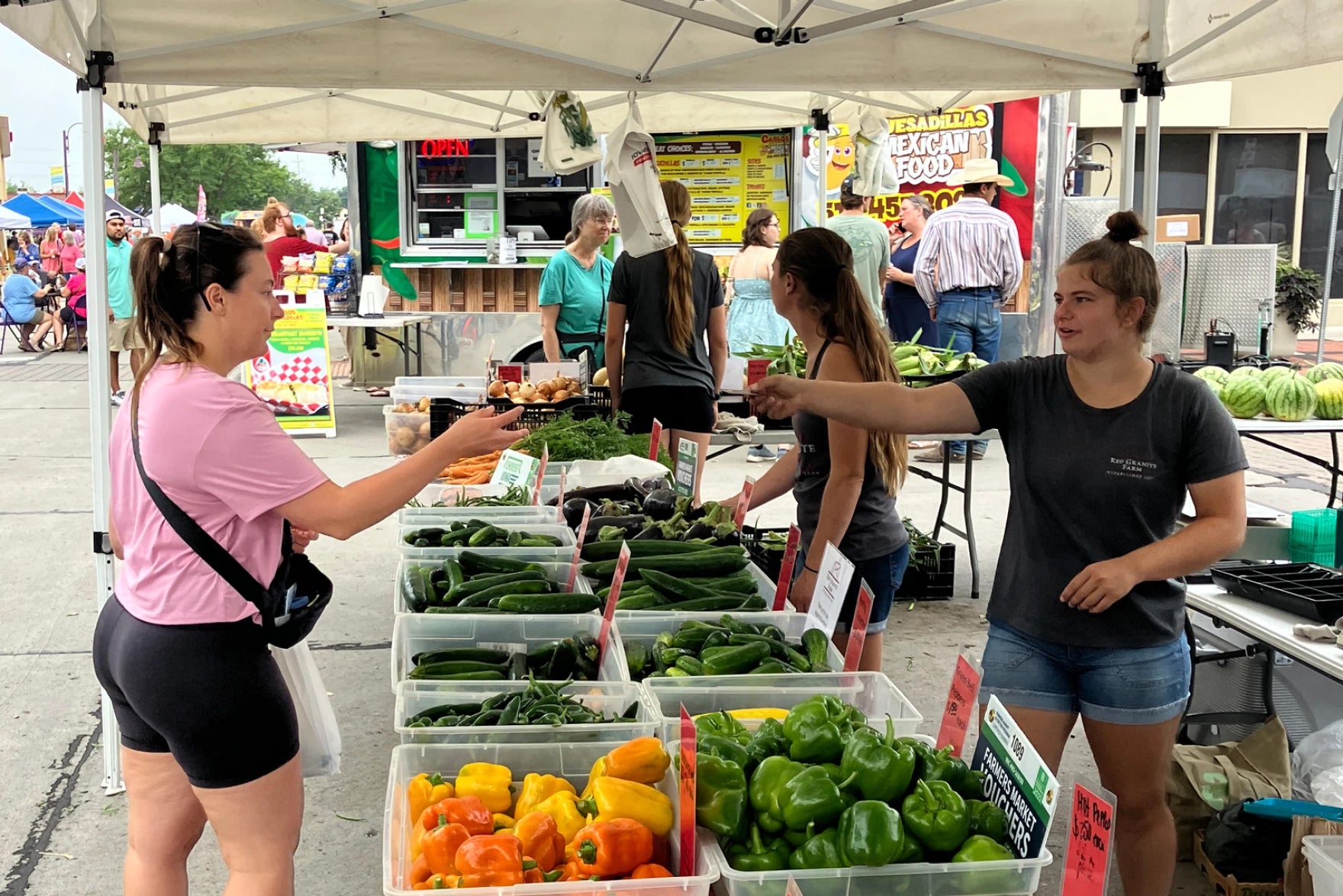For many years, hundreds of people in the La Crosse area have flocked to the Cameron Park Farmers Market after work on Friday nights.
It’s traditionally been as much of a social gathering and place to unwind after a long work week as it’s been to buy organic produce from area farmers.
But with many people stuck at home, despite the state Supreme Court’s striking down of the stay-at-home order, Friday’s opening of the farmers market will have a different feel as visitors are being asked to get in and get out.
News with a little more humanity
WPR’s “Wisconsin Today” newsletter keeps you connected to the state you love without feeling overwhelmed. No paywall. No agenda. No corporate filter.
“Come with a plan, come with a list, be ready to shop,” said Linda Vale, market manager of the La Crosse Farmers Market Association.
“Normally, it’s stay and enjoy the park, talk to your vendors, get to know your farmers. Stay and enjoy the music, learn how to cook. But all of those types of services have been put on hold due to the virus.”
The Cameron Park Farmers Market typically opens around May 1 but was delayed by two weeks for additional planning after the state’s stay-at-home order was issued in March.
The farmers market is in a city park. Vale said because of COVID-19, they’ve changed the layout of the market and many of the services they have offered in the past.
“We’re doing one-direction foot traffic. We’re also having a capacity now, so we just have one entrance point into the park,” she said. “We also have volunteers who are going to give reminders to people to keep their distance. We promote masks for our vendors and staff. We also are providing hand washing stations in the park.”
The market staff are also encouraging preordering from vendors to help encourage social distancing.
“Since we have to limit the direct shopping at the market, we’re opening up preorder curbside pickup,” Vale said. “You can go online, fill your cart, pay online and then you can come to the market and we’ll have your order ready and you can just drive up and drive off.”
“That‘s helping the community members who are high risk, giving them an option to still access the market goods, but not shop the market directly,” she continued.
Most of Wisconsin’s 72 counties have at least one farmers market. There are well over 100 of them in the state.
Wisconsin Farmers Market Association director Kristin Krokowski estimates about 40 percent have opened.
“Based on the farmers markets that I’ve spoken to and emailed with, most are opening on time or with a delay of a few weeks,” she said.
“There is a lot of variation with markets, so (each) market needs to make the decisions, sometimes in conjunction with local authorities, (on) how to modify the market for the safety of the customers and vendors,” Krokowski continued. “Some markets are smaller and have a lot of room for social distancing or are in areas where there are few infections. These markets can make different decisions than larger markets with more visitors.”
Some farmers markets in Wisconsin will not be opening in 2020, including those in Jefferson, Elm Grove and Pewaukee in the southeastern part of the state.
“Only a handful of farmers markets have decided not to open at all this season but the reasons for that tend to be more complicated than just the COVID-19 pandemic,“ Krokowski said.
The Wisconsin Farmers Market Association has helped many of the state’s farmers markets navigate the changes the pandemic has forced.
Like grocery stores and other businesses, farmers markets were deemed essential to the food supply and the state’s economy.
“Farmers markets are absolutely essential for farmers and some other vendors selling there,” she said. “For many farmers that sell at farmers markets, it is their primary place to sell their products.”
“They have only become more important as sales to schools and restaurants have gone down significantly or for some farmers disappeared completely,” Krokowski said. “There are a lot of farmers out there that aren’t set up or can’t feasibly become set up to do online or call ahead sales. Selling at farmers markets is their only viable option right now.“
One farmers market that has made a lot of changes in the way it operates is the Dane County Farmers Market (DCFM), which shifted from the very public setting of the Capitol Square in Madison to twice–a–week pickups at the Alliant Energy Center.
A crowd-funded emergency fund the organization started in late March has raised more than $36,000 to help small farmers and restaurants.
“Farmers markets, and specifically the DCFM, are a key sales outlet for many of our members,” said Sarah Elliot, market manager of the market. “With many restaurant accounts closed or drastically reduced, the ability to continue to sell directly to customers is paramount for the continued economic viability of these family farmers and small food businesses.
“When customers make purchases directly from family farmers, those dollars are far more likely to stay in the local economy,” Elliot continued. “With so many local businesses shuttered due to the restrictions put in place to slow COVID-19, bolstering our local economy is more important now than ever.“
Elliot said she has no idea when the Dane County market will return to business as usual.
“The state has not issued our permit for the Capitol Square and has not given us any indication as to what would need to happen in order for us to return to the Capitol Square,” she said. “For the foreseeable future, we will continue to offer our local food pickups. We do anticipate that if and when we are permitted to return to the Capitol Square, we would need to embrace a phased approach to returning to ‘normal.’”
Wisconsin Public Radio, © Copyright 2026, Board of Regents of the University of Wisconsin System and Wisconsin Educational Communications Board.





